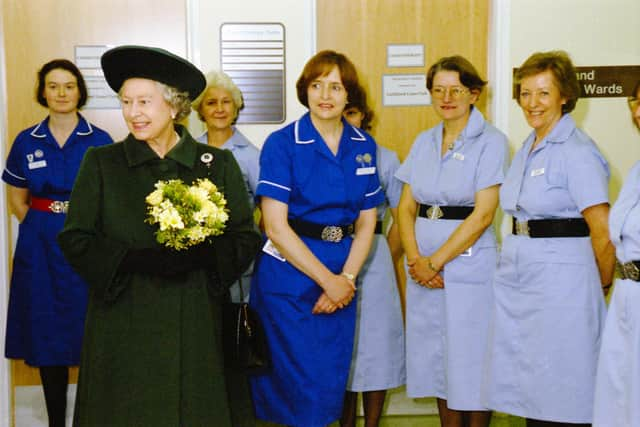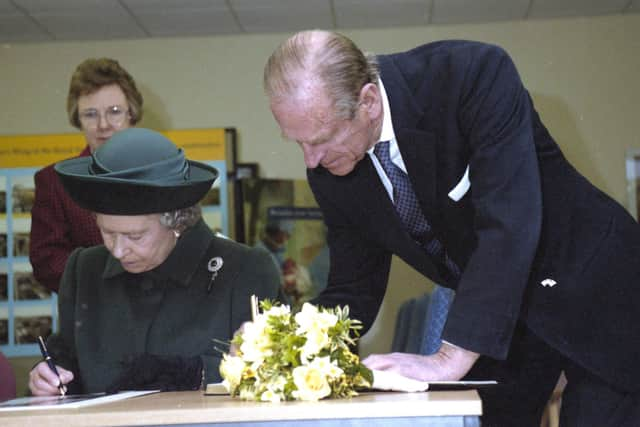Major milestone for cancer centre treating patients across Horsham and Crawley
and live on Freeview channel 276
St Luke’s Cancer Centre at the Royal Surrey County Hospital in Guildford was officially opened 25 years ago this week.
Advertisement
Hide AdAdvertisement
Hide AdBefore becoming part of Royal Surrey, St Luke’s was a standalone general hospital with its origins stemming back to an 1838 workhouse.


At the official 1997 opening, it was said that the new centre would serve a population of around 1.5 million people stretching from the outskirts of London to the south coast.
Today, Royal Surrey is a regional referral cancer treatment centre, serving a population of three million across the south east and accepting referrals across England for specialist radiotherapy.
Royal Surrey delivers more than 30,000 chemotherapy sessions each year and its treatment protocols are followed by many of the leading cancer centres across the UK.
Advertisement
Hide AdAdvertisement
Hide AdIt has specialist capabilities to diagnose, treat and care for more types of cancer than most general hospitals.


Chief executive Louise Stead said: “I’m incredibly proud of the service we provide our cancer patients and am grateful to our staff who put their patients at the heart of everything they do and strive to provide the best patient care every day.
“Our patients have some of the best outcomes in the country because of their dedication and care, and because we have invested in our cancer teams, technology and stayed at the forefront of research innovations.”
St Luke’s has a long history of innovation, starting at the original St Luke’s hospital with the instalment of the UK’s first Betatron electron therapy unit, the most up-to-date cancer treatment technology at the time.
Advertisement
Hide AdAdvertisement
Hide AdAnd it continues to innovate. It has more surgical robots in a single site than any other NHS Trust.
These robots use tiny instruments enabling precise and minimally invasive cancer operations.
Royal Surrey is one of only two hospitals in the country to have a Varian Ethos adaptive radiotherapy machine which uses artificial intelligence to provide accurate information about the exact position of a patient’s organs before each radiotherapy session, reducing side effects.
The hospital also has a buoyant research portfolio with 50 studies striving to improve cancer care open right now, giving patients access to a wider range of treatment options and helping to advance treatment.
Advertisement
Hide AdAdvertisement
Hide AdConsultant oncologist Sharadah Essapen said: “Cancer care is very different from 25 years ago. Back then, you were very much a general oncologist, whereas now oncologists specialise in one or two tumour sites, they can’t be generalists because that’s just a vast field.
“Treatment has become more advanced and consequently complex to deliver. Our approach to cancer care has changed too.
“We now have a more holistic focus so we don’t just treat patients for cancer, we care for the psychological effect of the condition on our patients and their families.
“Our cancer services have expanded and evolved to meet the needs of these changes. For example, now we have a nuclear medicine and medical physics team who provide highly specialised diagnostics and treatment regimens, and specialist therapy teams such as dietitians, physiotherapists and counselling.
Advertisement
Hide AdAdvertisement
Hide Ad“Each patient is now assigned a clinical nurse specialist, providing vital care throughout the whole patient pathway from diagnosis to post-treatment care. “They are the patient’s main point of contact and are experts in their particular type of cancer.
“They provide advice and support – both practical and emotional – to patients, their friends and their families.”
Have you read ...? Horsham dubbed England’s Covid capital